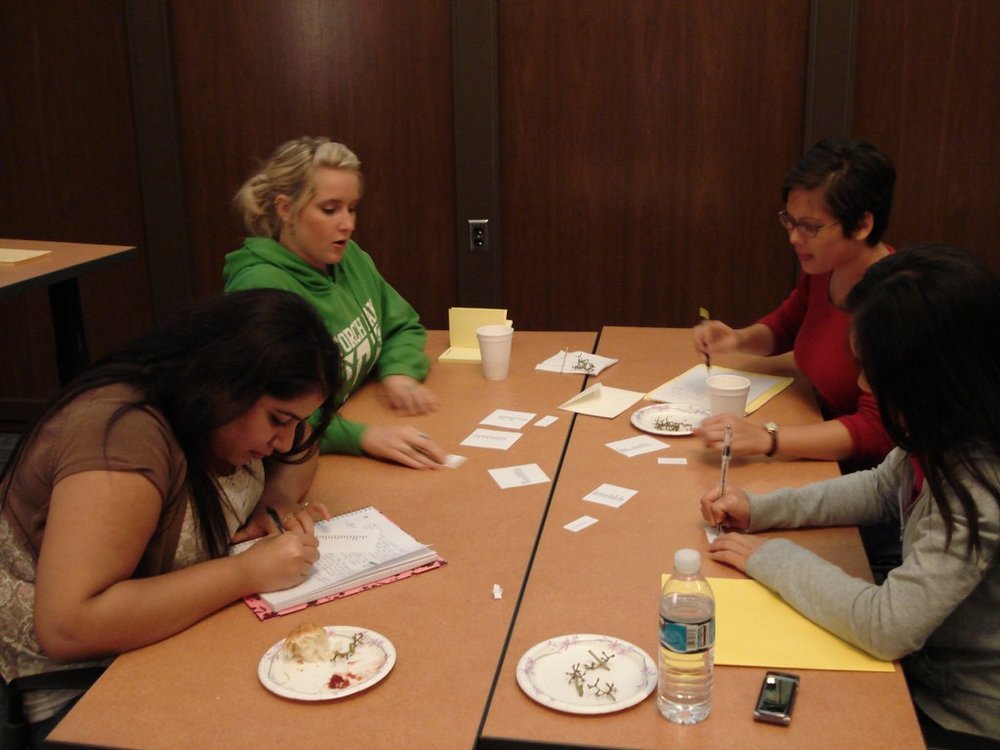 The Chronicle of Higher Education reports on efforts at San Jose State University to better serve first-generation college students. <Read the entire report on the Chronicle of HE web site.> One of the items that I noticed was the concern about programming and support services for first-genration students AFTER the first year. So often many colleges provide programs to transition students into college and additional programming during the first year. They the institution turns to the next cohort of students and focuses on them. The second, third, and fourth year students are assumed "safe" and little attention is paid with them. The Noel-Levitz enrollment management organization documents how one of the biggest drop out groups in colleges are the invisible "middle" students. These are the struments that survived the first year and then go off the radar of intrusive and comprehensive student retention services. These students silently exit the institution for the same reasons that had such a difficult time during the first year, but no one pays any attention to them anymore. If they are surveyed why they left, they provide the politically correct answer it was financial. The school officials shrug their shoulders and say it was the poor economy that did it to the students. Actually, the departure of the students is far more complex and often preventable.
The Chronicle of Higher Education reports on efforts at San Jose State University to better serve first-generation college students. <Read the entire report on the Chronicle of HE web site.> One of the items that I noticed was the concern about programming and support services for first-genration students AFTER the first year. So often many colleges provide programs to transition students into college and additional programming during the first year. They the institution turns to the next cohort of students and focuses on them. The second, third, and fourth year students are assumed "safe" and little attention is paid with them. The Noel-Levitz enrollment management organization documents how one of the biggest drop out groups in colleges are the invisible "middle" students. These are the struments that survived the first year and then go off the radar of intrusive and comprehensive student retention services. These students silently exit the institution for the same reasons that had such a difficult time during the first year, but no one pays any attention to them anymore. If they are surveyed why they left, they provide the politically correct answer it was financial. The school officials shrug their shoulders and say it was the poor economy that did it to the students. Actually, the departure of the students is far more complex and often preventable.
 From the Chronicle of HE report: "....Among the programs Ms. Morazes has set up is a series of workshops for first-generation students. The sessions focus on such topics as goal-setting, stress-management strategies, and talking to family members about college. She also visits local high schools to publicize resources at San Jose State and to provide students with role models, something she hopes to do more of.
From the Chronicle of HE report: "....Among the programs Ms. Morazes has set up is a series of workshops for first-generation students. The sessions focus on such topics as goal-setting, stress-management strategies, and talking to family members about college. She also visits local high schools to publicize resources at San Jose State and to provide students with role models, something she hopes to do more of.
Also looking to expand the program is Art King, the university's associate vice president for student affairs. "Right now we only look at first-generation students when they come in, but they are first-generation students throughout their time at college," he says. "My hope is to have programs for second-year students, third-year students, and for fourth-year students, so each group gets appropriate resources and help."
Because the program is new and growing, there is not much long-range data on its effectiveness. Ms. Morazes is tracking the progress of participating students, including retention rates after the first year and progress toward declaring a major and earning a degree. She conducts evaluations before and after events to assess changes in students' knowledge of campus resources, their sense of belonging and connectedness, and whether they feel they are on track to earn a degree...."


